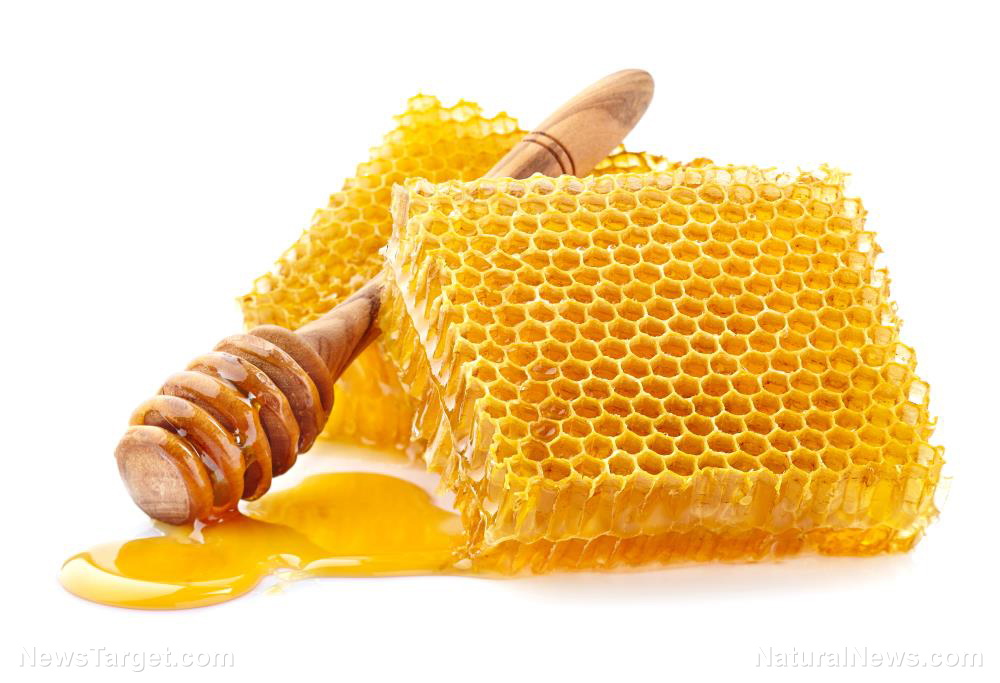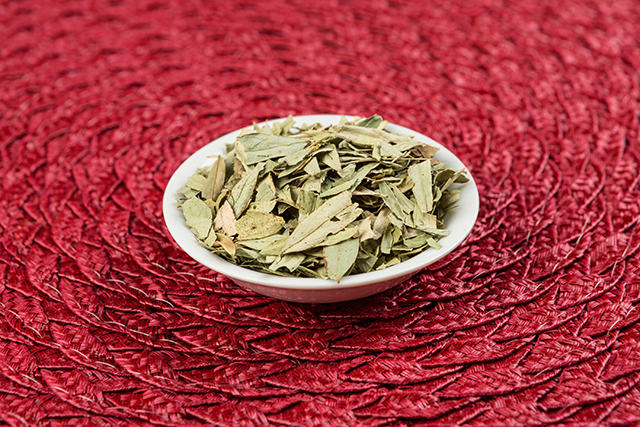Traditional Chinese herbal medicine, insect tea, found to be a potential treatment for cancer
10/10/2018 / By RJ Jhonson

Liver cancer is a deadly disease, but what makes it even more fearsome is how difficult it can be to treat effectively. According to the authors of a study published in CyTA – Journal of Food, early detection is the only key to curing liver cancer, even with conventional treatment methods. The authors suggested that consuming insect tea may help by inducing apoptosis in liver cancer cells.
“Insect tea” may not sound too appetizing, but the nature of this special tea is not as exotic as its name suggests. It is made from the leaves of wild plants, such as Kuding tea (a bitter medicinal infusion) and platycarya. The leaves are boiled and dried, and then sprinkled with rice water and stacked in bamboo baskets where they are allowed to ferment.
The fermentation process causes the leaves to release a light fragrance that attracts insects, such as the moth Hydrillodes repugnalis, to lay eggs on their surface. The larvae that hatch from the eggs eat the leaves and excrete fecula (fecal matter), which are exposed and stir-fried to create insect tea. Kuding tea is associated with plenty of health benefits which the authors say may be enhanced by the long process involved in creating insect tea.
In the study, the researchers wanted to determine how the components of insect tea caused apoptosis or programmed cell death. Apoptosis is an important process that allows the body to get rid of dysfunctional cells and maintain the balance between new and old, damaged cells. Like normal cells, cancer cells may be stimulated to “die” naturally. Stimulating apoptosis through food components is, therefore, seen as one of the most effective ways to effectively and safely treat cancer.
The researchers cultured HepG2 human liver cancer cells for an in vitro study. These cells were treated with insect tea ethanolic extracts (ITEE) for 48 hours. They discovered that different doses of ITEE induced different levels of apoptosis, with cell death rates proportional to the dosage applied. Treatment with 40, 80, and 160 micrograms per milliliter (mcg/mL) induced 15.6, 25.7, and 38.8 percent apoptosis levels respectively.
According to the authors, ITEE inhibited cancer cell growth and induced apoptosis through a number of effects. It promoted the expression of caspase-3, -8, and -9. Caspases are protease enzymes that play important roles in apoptosis. Caspase-8 and -9 are responsible for the activation of other caspases, while caspase-3 induces apoptosis by ensuring the hydrolysis of apoptotic factors.
ITEE further boosts this effect by decreasing the expression of HIAP-1 and HIAP-2, which are known inhibitors of caspases in cells that actually inhibit apoptosis. Suppressing both HIAP-1 and HIAP-2 allowed for the enhanced expression of caspases.
ITEE also had a notable effect on several proteins involved in apoptosis, notably Bax, Bcl-2, and Bcl-xL. The treatment increased the levels of both Bax and Bcl-2, but it decreased Bcl-xL. Bax is a pro-apoptotic protein while Bcl-2 and Bcl-xL are anti-apoptotic proteins. By increasing the levels of Bax in a dose-dependent manner, ITEE neutralizes the anti-apoptotic effects of both Bcl-2 and Bcl-xL and facilitates natural cell death.
Treatment with ITEE enhanced the expression of proteins p53 and p21. Both proteins are known to boost the expression of pro-apoptotic Bax. The protein p53 is also a master tumor suppressor – it induces apoptosis in cells with irreparable DNA damage and abnormalities.
ITEE was also able to increase the expression of proteins E2F1 and p73. E2F1 stimulates and stabilizes p53, promoting its apoptotic effects. This protein is also known to induce very specific apoptosis in cancer cells. High levels of E2F1 also triggers apoptosis caused by the protein p73.
An analysis of the constituents of insect tea revealed the presence of polyphenols, caffeine, flavones, vitamin C, and various amino acids. The researchers noted that the polyphenols in green tea are responsible for the beverage’s anti-cancer effects; the same polyphenols are found in insect tea, albeit in a slightly lower concentration. Both flavones and caffeine are notable for their anti-cancer and anti-inflammatory benefits, while vitamin C may help in protecting the cells from cancer. (Related: Milk thistle shows promise in treating liver cancer.)
Based on their findings, the researchers concluded that insect tea can indeed trigger apoptosis in liver cancer cells by increasing the expression of pro-apoptotic proteins and other factors, besides containing anti-cancer nutrients. They recommended in vivo experiments and further research on the anti-cancer effects of insect tea.
Learn of other natural cancer treatments at AntiCancer.news.
Sources include:
Tagged Under: alternative medicine, insect tea, kuding tea, Liver cancer, liver health, natural cures, natural medicine




















